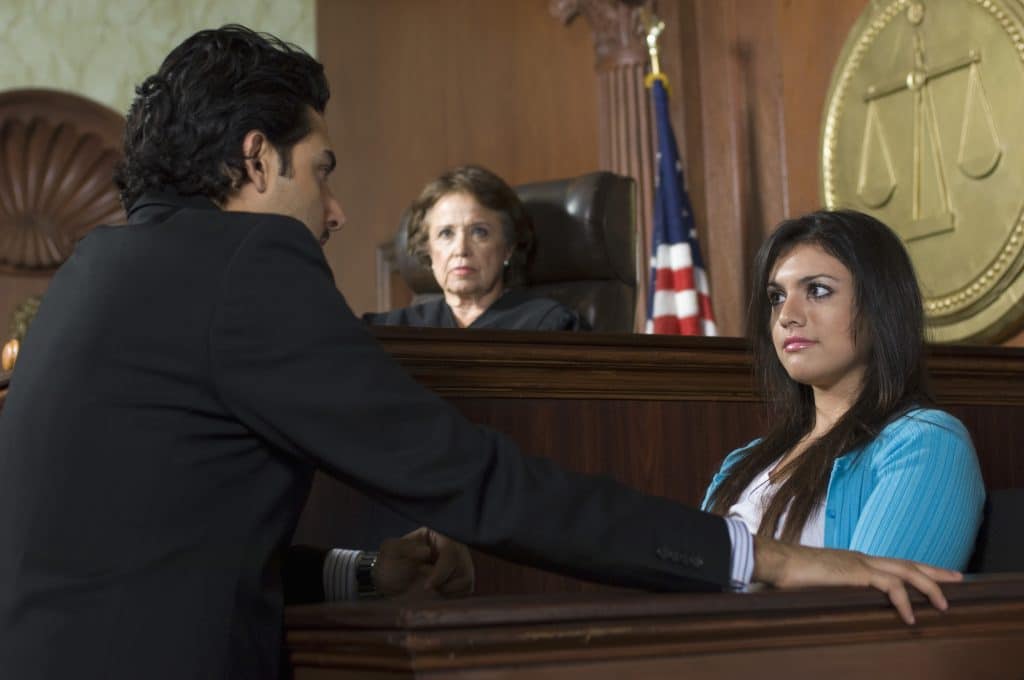The Indiana Civil Protection Order Act (“ICPOA”)1 was enacted to protect victims of domestic or family violence and promote the prevention of future domestic and family violence2. The Act allows victims to file for an order of protection against members of their own household who have committed domestic or family violence. The Act also allows victims to file for an order of protection against individuals who have committed stalking or a sex offense against the victim. While it is extremely important to protect all victims, it is also important to protect individuals falsely accused of offenses warranting an order of protection or where the movant cannot meet the civil burden of proof for the protective order. Many understand the power of human emotion. When individuals find themselves upset, hurt, or angry with another, that person’s objective view may be distorted against that other person. This reason is why courts must be cautious in granting protective orders, and closely examine the facts of each independent case to ensure that this is, in fact, an order for protection matter, not an order reactive to poor judgment or incorrect recollection. This blog addresses the discretion given to a trial court judge hearing a protective order request (or a jury in criminal cases) to determine if sex was consensual because of alcohol use (intoxicated people generally cannot provide lawful consent for sexual encounters).
The Indiana Court of Appeals recently discussed this delicate balancing act judges must follow in V.E. v. A.S.3. In V.E., affirming the trial court’s denial of an order for protection for lack of evidence. The facts of the case are as follows: V.E., in her late 20’s, and A.S., in his early 20’s, were in a club together and attended some social events together. One night, V.E. had members of the club, including A.S., over to her house, which she shared with her mother. After the other members had left, V.E. and A.S. began engaging in sexual intercourse. This continued until they were interrupted by V.E.’s mother. The following day, V.E. sent A.S. a series of text messages, where V.E. first admitted to initiating the sexual contact. V.E.’s texts then became accusatory and blamed A.S. for taking advantage of her while she was drunk. V.E. filed for an order of protection, alleging that A.S. committed stalking and a sex offense against her. During the bench trial, V.E.’s testimony differed from that of A.S. and her mother. Furthermore, V.E.’s testimony contained several contradictions. In denying V.E.’s order for protection, the trial court determined that V.E. had not “shown, by a preponderance of the evidence, that . . . a sex offense has occurred sufficient to justify the issuance of an Order for Protection.”
In affirming the trial court’s denial of an order for protection, the Court of Appeals noted that they do not reweigh the evidence of the case but examine whether the trial court’s decision was clearly erroneous. V.E., on appeal, was arguing that the trial court erroneously erred, because “the undisputed evidence in this case is that the parties engaged in sexual intercourse at the time when [V.E.] was very drunk.” The Court of Appeals refused to accept this argument, stating that it “is not undisputed” that V.E. was very drunk. The Court of Appeals pointed out the contradictory evidence presented at trial relating to the amount of alcohol consumed that night and V.E.’s level of drunkenness. The Court found that V.E.’s claims on appeal “effectively amount[ed] to an invitation for this court to reassess her credibility and reweigh the evidence, which we will not do.”
The importance of this case is that it illustrates the crucial impact of a trial court’s decision as it observes all the verbal and non-verbal acts of the parties. An appellate court generally gives deference to the trial court’s factual decision, and barring some blatant violation of common sense, will not reverse simply because it could have decided the case differently. Knowing the status of developments in the law is the key, as well as being an engaged citizen in our participatory system of government. This blog post on a key new case was written by attorneys at Ciyou & Dixon, P.C. who handle protective order cases and appeals of protective orders throughout the state. Knowing the law is key to being an engaged citizen. Having counsel current on the latest developments in law provides you with the best defense. This blog is written for educational purposes only. It is not intended as legal advice or a solicitation for services. It is an advertisement.








